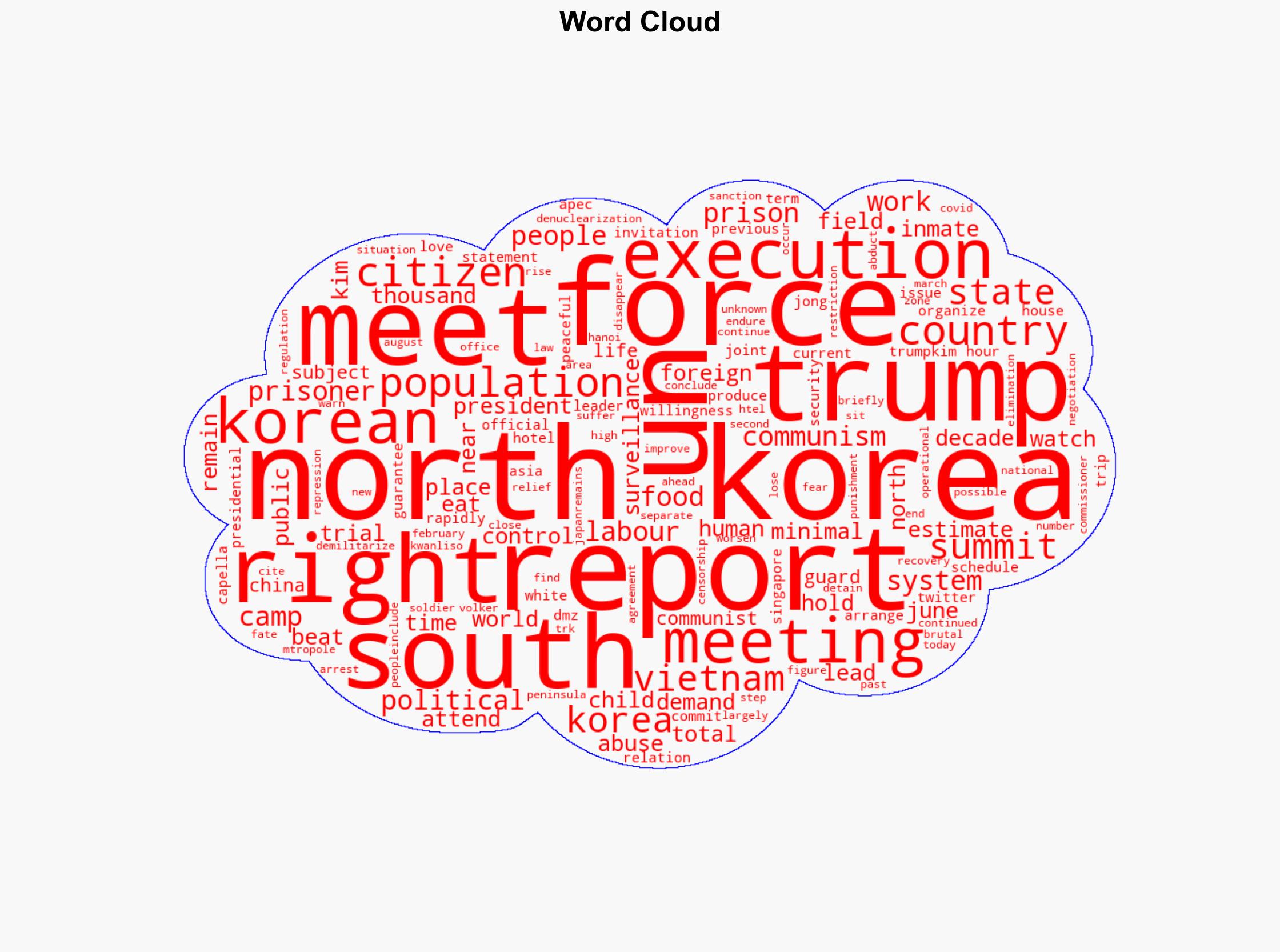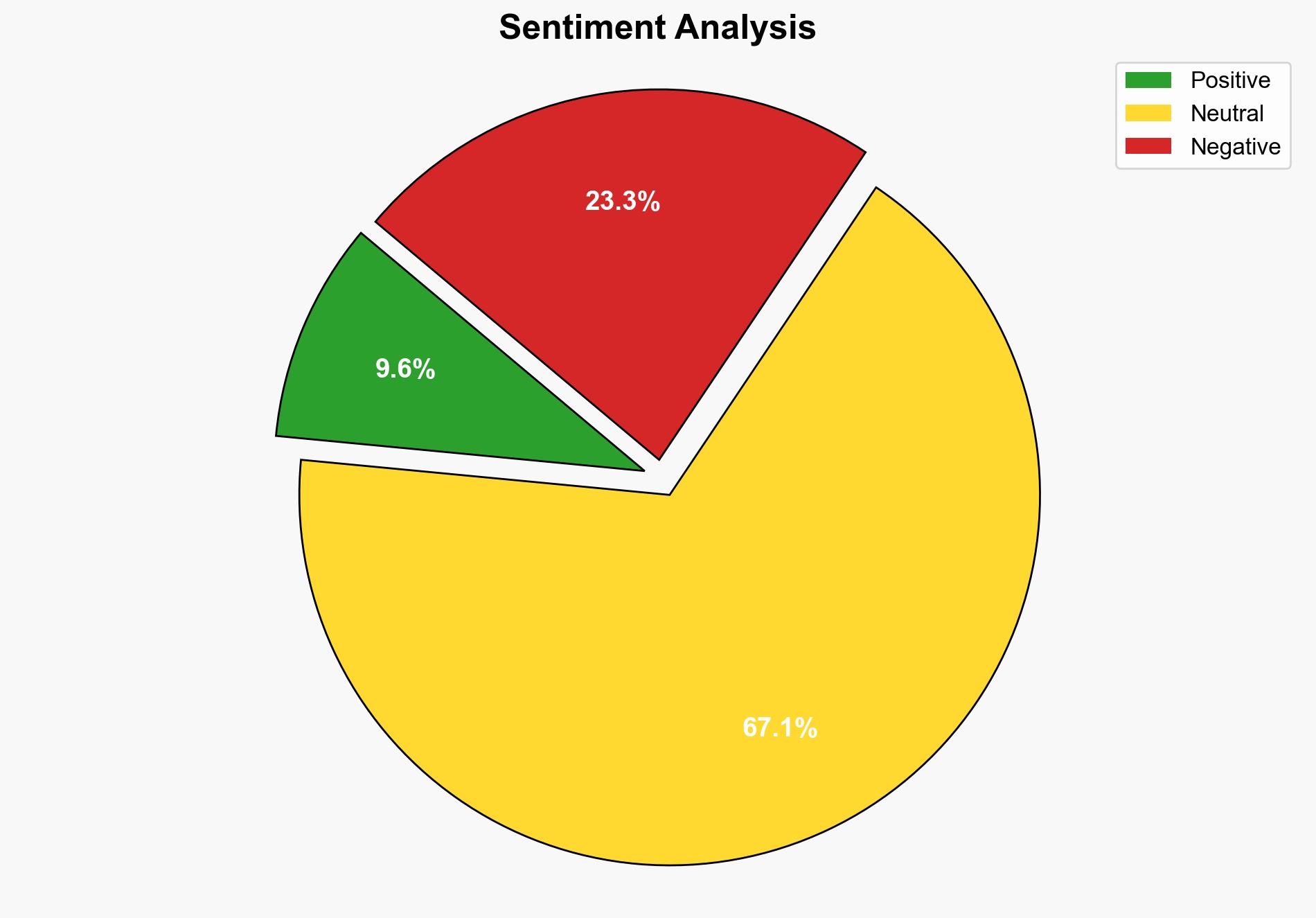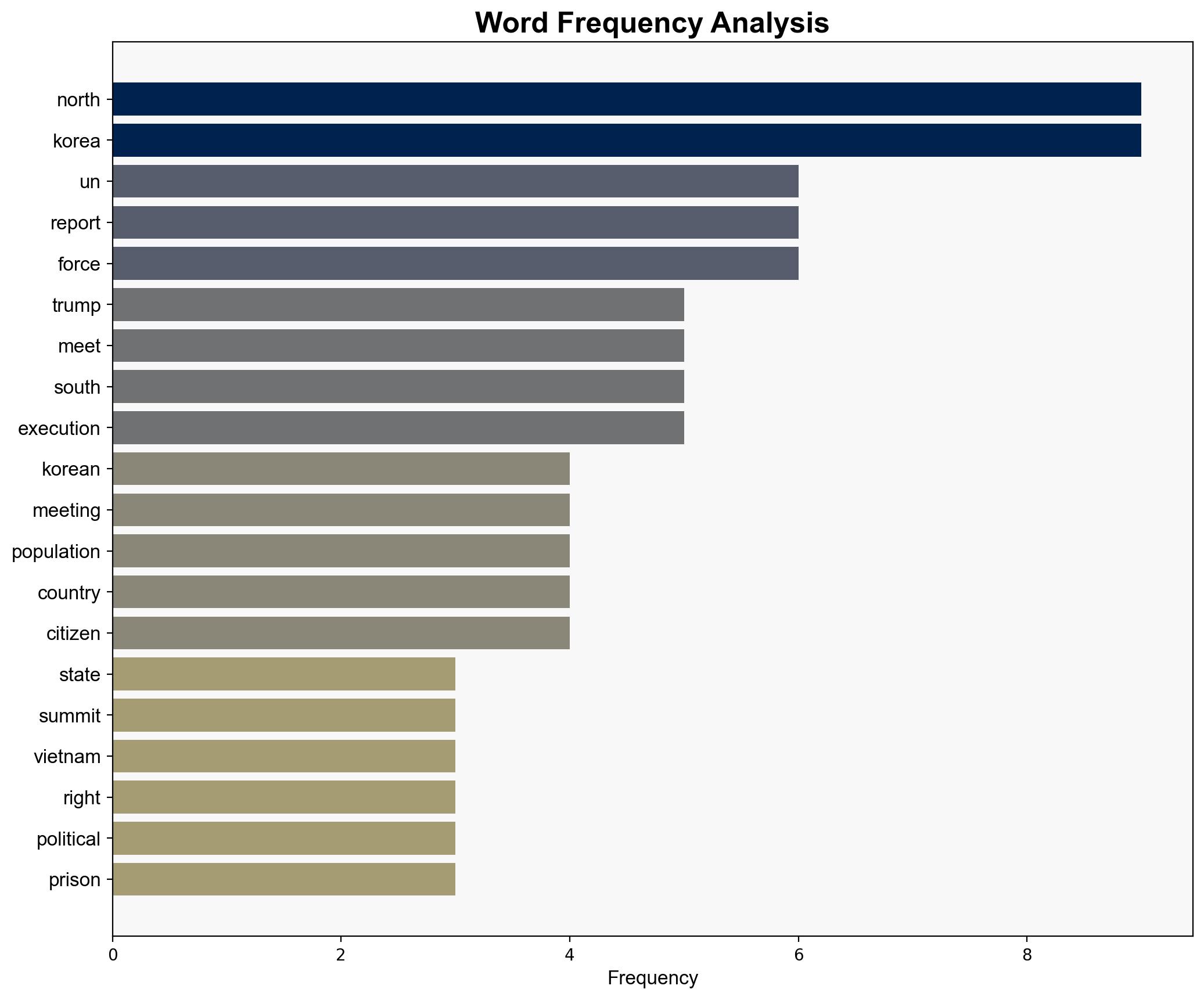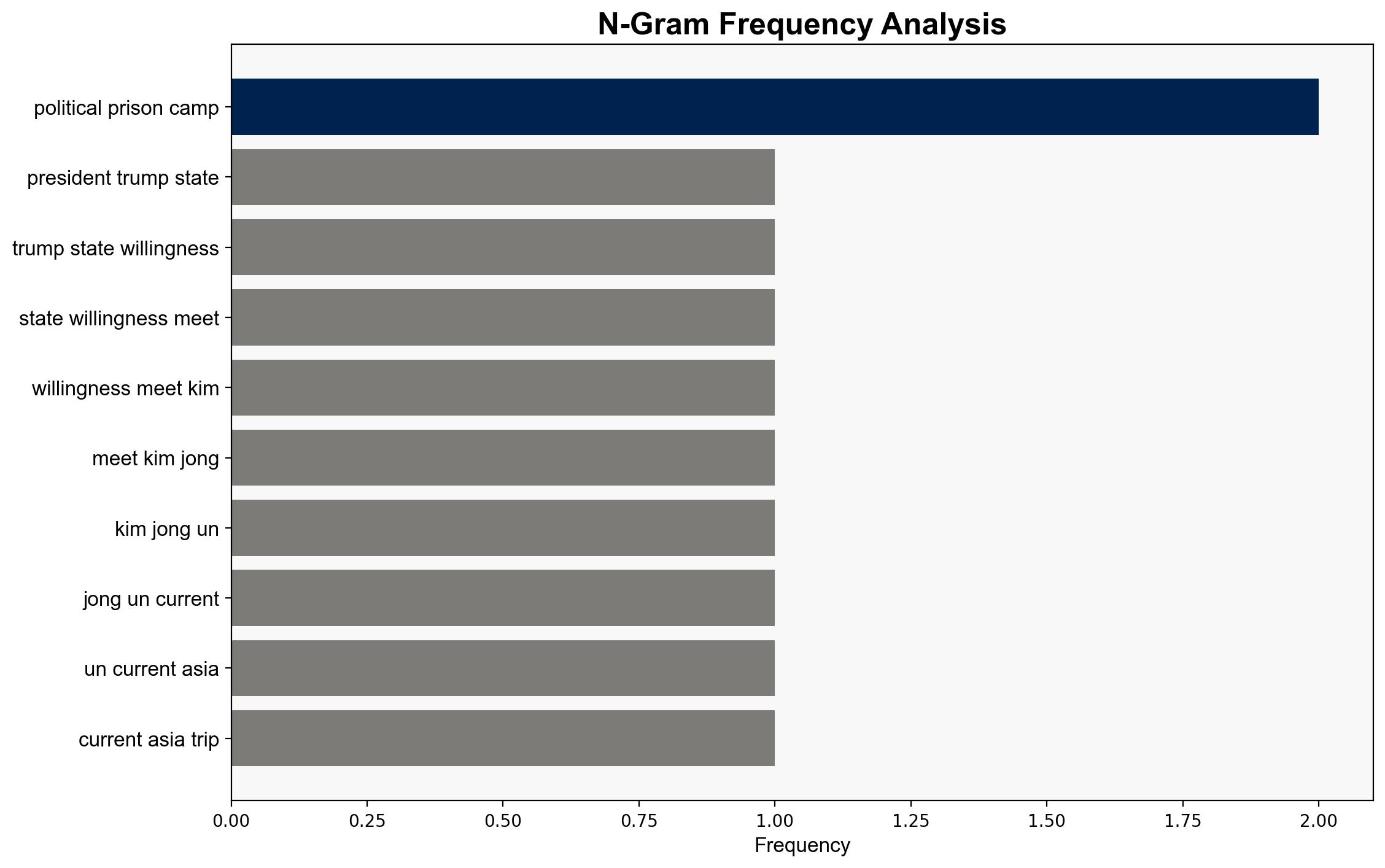Ahead of Possible TrumpKim Meeting North Korean Oppression Intensifies – Thegatewaypundit.com
Published on: 2025-10-29
Intelligence Report: Ahead of Possible TrumpKim Meeting North Korean Oppression Intensifies – Thegatewaypundit.com
1. BLUF (Bottom Line Up Front)
The most supported hypothesis is that North Korea is intensifying internal repression to consolidate control ahead of potential diplomatic engagements, such as a meeting with Donald Trump. This strategy aims to project strength and stability. Confidence in this hypothesis is moderate, given the complexity of North Korean internal politics and external diplomatic maneuvers. It is recommended to closely monitor North Korean domestic policies and international communications for shifts that may indicate changes in diplomatic strategy or internal stability.
2. Competing Hypotheses
1. **Hypothesis A**: North Korea is increasing oppression to consolidate internal control and project strength before a potential meeting with Donald Trump, aiming to negotiate from a position of perceived stability and power.
2. **Hypothesis B**: The intensification of oppression is primarily a response to internal challenges, such as economic difficulties and social unrest exacerbated by COVID-19, with less direct connection to the potential meeting with Trump.
Using ACH 2.0, Hypothesis A is better supported by the timing of the repression coinciding with diplomatic activities, suggesting a strategic alignment. Hypothesis B, while plausible, lacks direct evidence linking internal unrest to the timing of diplomatic engagements.
3. Key Assumptions and Red Flags
– **Assumptions**: It is assumed that North Korea’s leadership sees value in projecting internal stability as a negotiation tactic. Another assumption is that external diplomatic engagements significantly influence internal policy decisions.
– **Red Flags**: The lack of direct evidence connecting internal repression to diplomatic strategy is a red flag. Additionally, the potential for cognitive bias exists in interpreting North Korea’s actions through a predominantly external lens, possibly overlooking internal dynamics.
4. Implications and Strategic Risks
Increased repression could lead to heightened internal unrest, potentially destabilizing the regime. This scenario poses risks of regional instability, especially if internal dissent escalates into broader conflict. Economically, continued sanctions and internal repression may exacerbate North Korea’s economic challenges, potentially leading to humanitarian crises. Geopolitically, intensified repression could strain North Korea’s relations with allies and adversaries alike, impacting diplomatic negotiations.
5. Recommendations and Outlook
- Enhance intelligence collection on North Korean internal dynamics to better understand the drivers of repression.
- Engage in diplomatic dialogue with regional partners to prepare for potential instability scenarios.
- Scenario Projections:
- **Best Case**: North Korea stabilizes internally, leading to constructive diplomatic engagements.
- **Worst Case**: Internal unrest leads to regime instability, causing regional security threats.
- **Most Likely**: Continued repression with limited diplomatic progress, maintaining the status quo.
6. Key Individuals and Entities
– Donald Trump
– Kim Jong Un
– Volker Türk (UN High Commissioner for Human Rights)
7. Thematic Tags
national security threats, human rights, regional focus, diplomatic strategy





